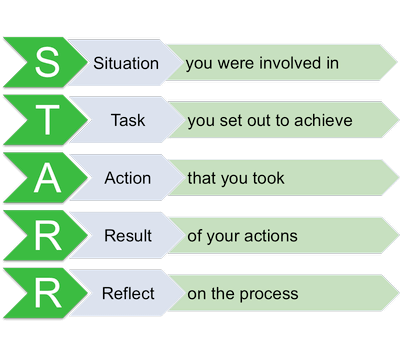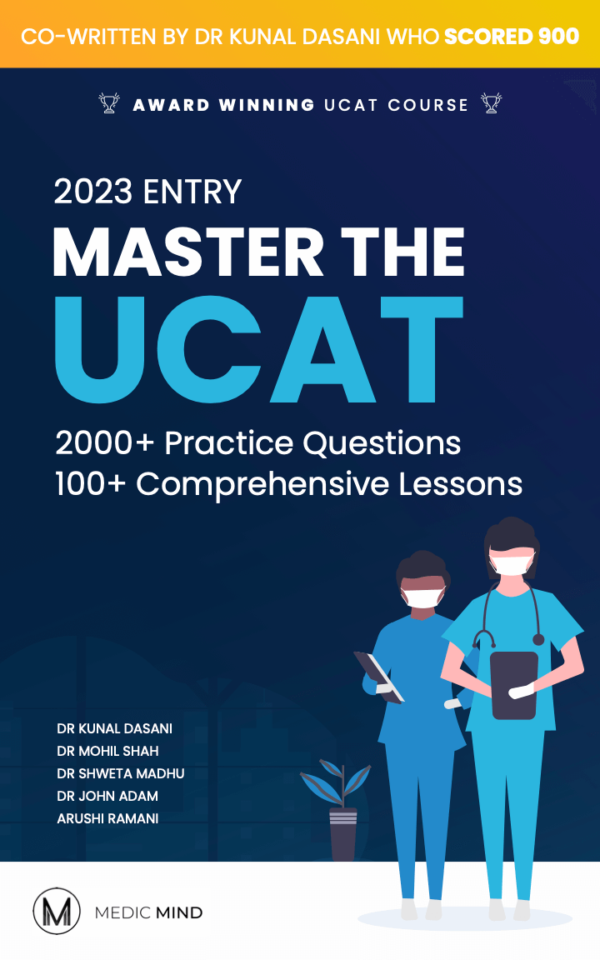Loading...


Top Tips for Medicine Interviews
Medicine interviews are a fantastic thing – they allow applicants to boldly showcase their personality whilst offering an additional admissions step through which chosen candidates can strengthen their application to medical school. Furthermore, they give admissions officers an opportunity to learn more about the candidate in front of them; by putting a face to a name, medical schools are able to pick the right people for their program, and consequently, the future of the healthcare system.
Given the obvious weight of medicine interviews, it’s understandable how varied they are in style and structure. From panel interviews to MMIs and data analysis to role play, these interviews test a variety of skills. This brings about a unique challenge for applicants – how does one best prepare for an interview that can manifest in dozens of different ways? At Medic Mind, we aim to bolster every prospective medic’s application by giving you the tools to succeed. With this in mind, this guide will focus on the most effective tips for medicine interview preparation.
To best learn how to prepare for your interview, you must first understand how the interviews work. If you’re expecting to attend a MMI – the most common of the interview formats – your preparation will vary slightly to those attending traditional panel interviews or semi-structured interviews. Therefore, your first step is to brush up on your knowledge of interview formats; but where do you start? Luckily, we’re here to help.
Multiple mini interviews, or MMIs, are a widely used interview format involving multiple stations through which the candidate rotates. Each station will test different skills examined by different examiners. While the thought of gaining approval from 5-10 interviewers may seem daunting, this variety is one of the biggest strengths of the MMI. With each new station, you will have a chance to redeem yourself as the examiner would not have interacted with you prior. MMI stations tend to be quite unique, involving role-play, ethical debates and much more! This, of course, factors heavily into your preparation but more on that later.
Traditional panel interviews are less common these days, with only a handful of universities leaning in their favour. They offer a more stereotypical interview experience with each candidate sitting before a panel of assessors for further discourse on their candidature and application form. Typically, panel interviews focus more heavily on questions surrounding personal goals and motivations as opposed to general concepts of healthcare provision. Having said this, MMIs and panel interviews have both, in recent times, borrowed from each other in an effort to equalise the interview process.
As you can imagine, the variety in interview formats lends them to a multitude of possible preparation strategies. Here are some of our favorites, based on the individual interview formats.
Preparing for the MMI
- Memorise and learn to apply the 4 pillars of medical ethics – autonomy, justice, beneficence and non-maleficence. These, alongside consent, confidentiality and patient safety, should form the backbone of any task involving ethical or medical debate.
- Practice common MMI scenarios in a timed manner. Time constraints in the MMI are notorious. Ensure your answers are concise yet reflective by cutting down on unnecessary fluff. Most importantly, leave enough time for your assessor to delve into any follow-up questions they may have as these are also marked.

- Familiarise yourself with common MMI scenarios. The Medic Mind blog offers plenty of advice on common medicine interview questions and tips on how to tackle them. There are also plenty of other free resources available online as well as brilliant paid courses. All of these will give you a better grasp on what to expect, allowing for proactive preparation and fewer surprises on the day.
Preparing for the panel interview
- In a panel interview, candidates sit across from the same panel for the entire duration of their interview. This leaves little room for bad impressions relative to in a MMI. However, remember that your audience wants to see you succeed. When practicing your responses, don’t simply start over when you make a mistake. You won’t have this luxury during the interview. Instead, practice pausing, deep breathing and speedy reflecting to help you get back on track.
- Brush up on the expected structure and questions in traditional panel interviews. Typically these include dialogue surrounding your motivation and dedication to study medicine but more information can be found on our blog and through our courses.
- Treat every assessor equally. Some may be quieter than others but remember to address each individually and make eye contact with all of them whilst responding. Thank each one before departing. To make this a habit, practice your interview responses with multiple family members or friends so you get used to talking to a group as opposed to a single face.
- Know your responses on the application form well. While both interview formats may call upon your application form responses, it is more likely in a panel interview. Reflect on everything mentioned in your application with additional detail beforehand so you’re ready to discuss any singular experience if and when called upon during the interview.,
General tips
- Practice non-verbal communication skills as much as verbal delivery. Even the perfect answer won’t please your assessor if it’s communicated in an unengaged manner. Focus on specific cues such as eye-contact, hand gestures, open body language, appropriate facial emotions etc. A good way to practice these is to consciously apply them in conversations with strangers, for example, the man behind the counter at your local shops. Non-verbal cues may come easier with friends and family so ensure you’re able to confidently uphold them in unfamiliar territory. This will add an air of comfortable confidence to your answers and will be well received by your interviewers.
- Practice delivering empathy, not sympathy. This is a common mistake interviewees make. Empathy and sympathy are not the same thing and mistaking the former for the latter can come across unknowingly condescending. Look up phrases and body-language cues that suggest empathy. For example, a simple “I’m sorry about [insert situation here], is there anything I can do to help?” said in a quiet, neutral tone while leaning towards the recipient is far more empathetic than projecting your own struggles, taking over the conversation or speaking too loudly. Empathy is a key skill tested in most medicine interviews so prepare for it accordingly.
- Use the ‘STARR’ technique when discussing any activity. Not only is this a widely lauded technique amongst interviewers, the ‘STARR’ method will also provide structure and focus to your answers. Ensure to give appropriate focus to the reflection as this is what will leave the longest lasting impression on your assessor.

- Present yourself in a formal, professional manner. From your outfit to your introductions, everything about your presentation should allude to someone who’s ready to tackle the challenges of a challenging yet rewarding career. Remember, if you believe that you belong in the NHS, they will too.
- Remember that there are 2 questions being asked at every station – the one in front of you and the one in every assessor’s mind: “Does this person belong at our institution/in the healthcare system?”. Ensure you answer both of these questions. When answering any question, be sure to link this back to the skills you have developed in preparation for medical school and a medical career. Don’t simply discuss your past, but link it to the future; for example, if discussing teamwork, be sure to talk about how you have honed your ability to work in a team and why this is important in medicine.
- Finally, learn how to navigate virtual interviews. The possibility is that your interview, regardless of format, will be held online this year.
This list is long enough without the realisation that it isn’t nearly exhaustive but at its core, preparing for your medicine interview is about being proactive and confident. Remember that everything you’ve done building up to your interview only bolsters the real star of your application – you! At the end of the day, your interview is nothing but a chat about yourself and who knows more about you, than you! Prepare well in advance and stay in the know about any changes your university may be making to the interview process. Good luck!
Shweta Madhu
Lead Author & Medic Mind tutor






Was this article helpful?
Still got a question? Leave a comment
Leave a comment
1044 Comments
WymSkPhNMedic Mind Tutor
26 September 2023
1
canada pharmacy onlineMedic Mind Tutor
22 October 2023
I loved as much as you’ll receive carried out right here. The sketch is attractive, your authored material stylish. nonetheless, you command get got an nervousness over that you wish be delivering the following. unwell unquestionably come further formerly again as exactly the same nearly very often inside case you shield this increase.
James SmithMedic Mind Tutor
28 February 2024
Values can be shaped by cultural, societal, or personal backgrounds. Different cultures and societies may place different importance on certain values.